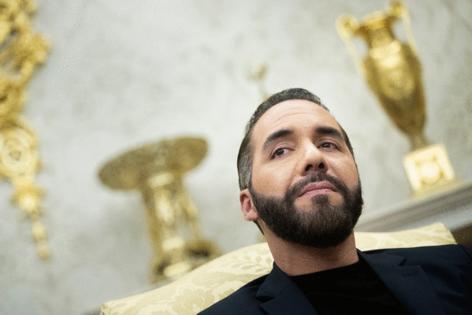Commentary: What El Salvador teaches us about safety without democracy
Published in Op Eds
I was working in El Salvador when President Nayib Bukele declared a state of exception. In 2022, after a sudden spike in homicides, he suspended due process and sent soldiers into neighborhoods. Overnight, thousands were detained. Many were guilty. Many were not.
Bukele’s crackdown raised a simple, brutal question: What is the value of democracy without security?
Now, as troops are threatened for deployment in American cities, notably Chicago, we face the inverse: What is the value of security without democracy? Salvadorans saw violence drop, streets reopen, tourism grow. But three years later, the state of exception remains. Security became the justification, democracy the casualty. That is the trade-off we must avoid.
Of course, El Salvador’s democracy has always been more fragile than our own. The state of exception came in the wake of decades of violence and weak institutions. The United States is different: We’re stronger and our systems of accountability more resilient. That is precisely why the comparison matters.
Bukele acted in what many believed was a true emergency — but the danger lies in how quickly emergency became routine. For us, with crime already declining, to choose force now would not be necessity. It would be neglect.
President Donald Trump threatens to deploy the National Guard to Chicago. I do not believe we are in a state of emergency. Chicago’s homicides are down more than 30%. Shootings have fallen nearly 40%. Across the country, violent crime is also declining — the FBI reported the sharpest one-year drop in decades. And yet the reflex is familiar: to meet fear with force.
We’ve been here before. In the 1990s, mass incarceration brought a short-term drop in homicides. But because we failed to invest in communities at the same time, the harm was generational — fractured families, diminished opportunity, neighborhoods stripped of trust. The result was less safety and less democracy.
The lesson is not that force never shifts numbers. The lesson is that force alone never builds peace. And right now, with crime declining, we have a rare opportunity to invest in what does — without sacrificing democracy in the process.
We know layered investments work. It’s why some analysts attribute today’s drop in violence to many factors: the maturing of the community violence intervention movement, targeted policing reforms, demographic changes, pandemic-era disruptions easing, even shifts in drug markets. The point is not that one approach “solved” violence, but that overlapping strategies can move the needle — safely, and without eroding rights.
Which is why the next question is so urgent: Can we seize this moment to do more than react to crime? Can we use this fragile window of progress to imagine and invest in what comes next — before fear pushes us back toward force alone?
What if violence interrupters — trusted precisely because of their lived experience — became community health workers, providing basic care and connecting people to essential services, helping not only to mediate conflict but also to strengthen stability every day?
What if we encouraged the flow of investment and homeownership usually dismissed as gentrification, but designed it so the money stayed local and residents stayed in place? What if parks, libraries and schools were funded as one system — even if it meant breaking old bureaucracies — so the very institutions that define neighborhood life were reinforced?
None of this is easy, especially in a time of scarcity, such as what Chicago and governments across Illinois face. Federal and state budgets are tightening, raising taxes is often unpalatable and philanthropies are stretched.
El Salvador shows us what happens when force becomes the only measure of progress: Security is fragile, and democracy pays the price.
Talk of bringing in the National Guard is less a solution than a distraction — a show of force that diverts attention away from the deeper investments communities need. The opportunity before us is to ask: If violence is no longer the defining crisis in our most marginalized communities, what do we build instead? And how do we get there, fast, even in a time of scarcity?
That is the work ahead — for El Salvador, Chicago and cities across the country. Not just keeping peace in the absence of conflict, but investing — creatively and urgently — in the conditions that allow every community to thrive.
____
Debra Gittler is the founder of With Company, an advisory practice that helps leaders and purpose-driven organizations build trust, strengthen culture and align strategy. She previously founded and scaled ConTextos, working for over a decade in El Salvador and Chicago in schools, prisons and violence prevention.
___
©2025 Chicago Tribune. Visit at chicagotribune.com. Distributed by Tribune Content Agency, LLC.
























































Comments